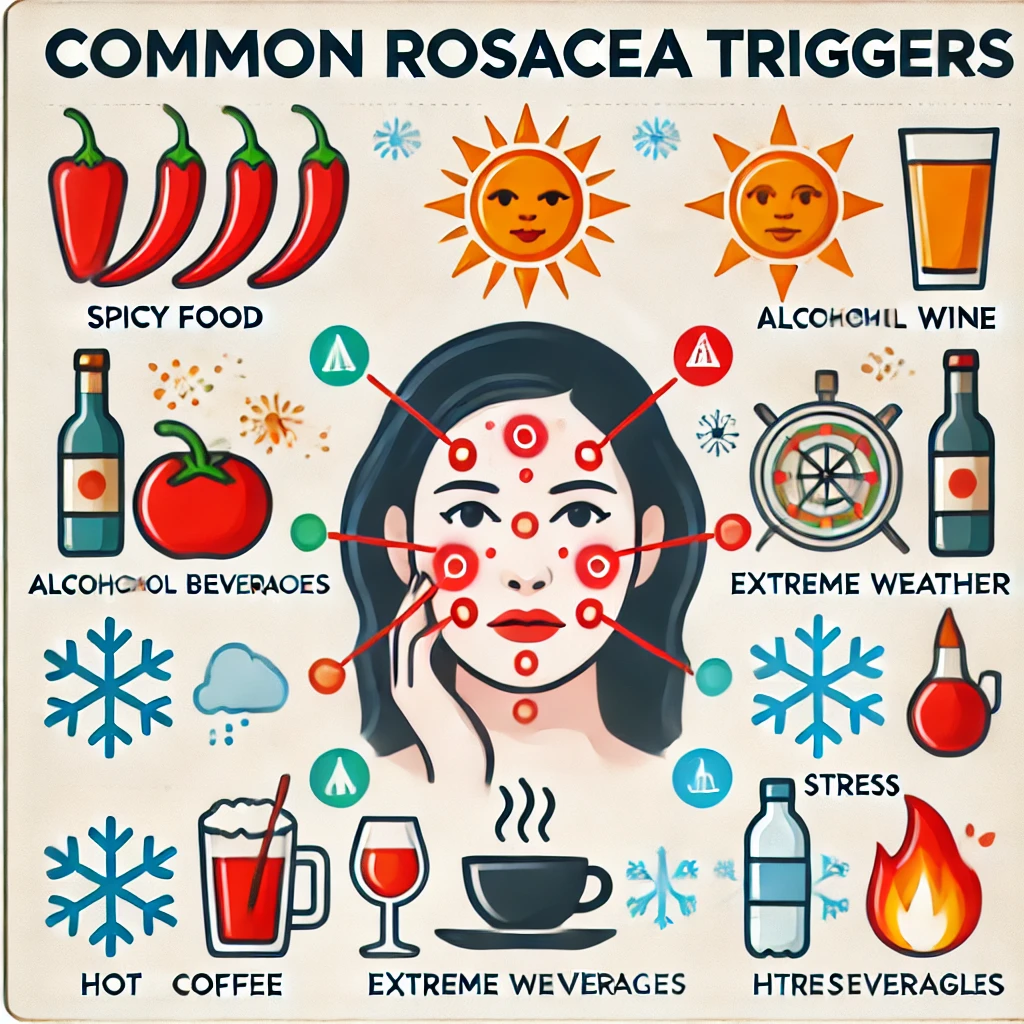
Rosacea is more than just occasional redness; it’s a chronic skin condition that affects millions worldwide. Known for its characteristic flare-ups, rosacea often impacts the face, causing discomfort and emotional distress. But what exactly triggers this condition, and how can you recognize its symptoms? Let’s dive into the causes and signs of rosacea to better understand this common skin concern.
What Causes Rosacea?
Although the exact cause of rosacea remains unknown, experts believe it stems from a combination of genetic and environmental factors. Here are some potential culprits:
- Hyperactive Blood Vessels: Excessive dilation of facial blood vessels leads to redness and visible veins.
- Immune System Overactivity: An overreactive immune response may trigger inflammation in the skin.
- Microorganisms: A type of mite, Demodex folliculorum, and the bacteria Helicobacter pylori have been linked to rosacea.
- Triggers: Common triggers include spicy foods, alcohol, stress, extreme weather, and hot beverages.
Recognizing the Symptoms
Rosacea manifests in various ways, with symptoms often developing in stages.
- Persistent Redness: Often mistaken for a sunburn, this hallmark symptom typically appears on the cheeks, nose, and forehead.
- Visible Blood Vessels: Tiny red lines, known as telangiectasia, may become noticeable under the skin.
- Bumps and Pimples: These may resemble acne but lack blackheads.
- Thickened Skin: In severe cases, the skin may thicken, especially around the nose (a condition called rhinophyma).
- Eye Irritation: Some experience redness, dryness, or swelling in and around the eyes, known as ocular rosacea.
Who’s at Risk?
While rosacea can affect anyone, certain factors increase your risk:
- Fair Skin: People with lighter skin tones are more prone to rosacea.
- Family History: A genetic predisposition may play a role.
- Age and Gender: It commonly develops in adults aged 30–50 and tends to be more severe in men.
Final Thoughts
Recognizing rosacea early is key to managing its symptoms effectively. If you suspect you have rosacea, consult a dermatologist for a tailored treatment plan. From topical creams to laser therapy, there are options to help control flare-ups and keep your skin looking and feeling its best.
Remember: Understanding your triggers and taking proactive steps can make all the difference in managing rosacea. A little knowledge goes a long way in fostering a confident, healthy complexion!
